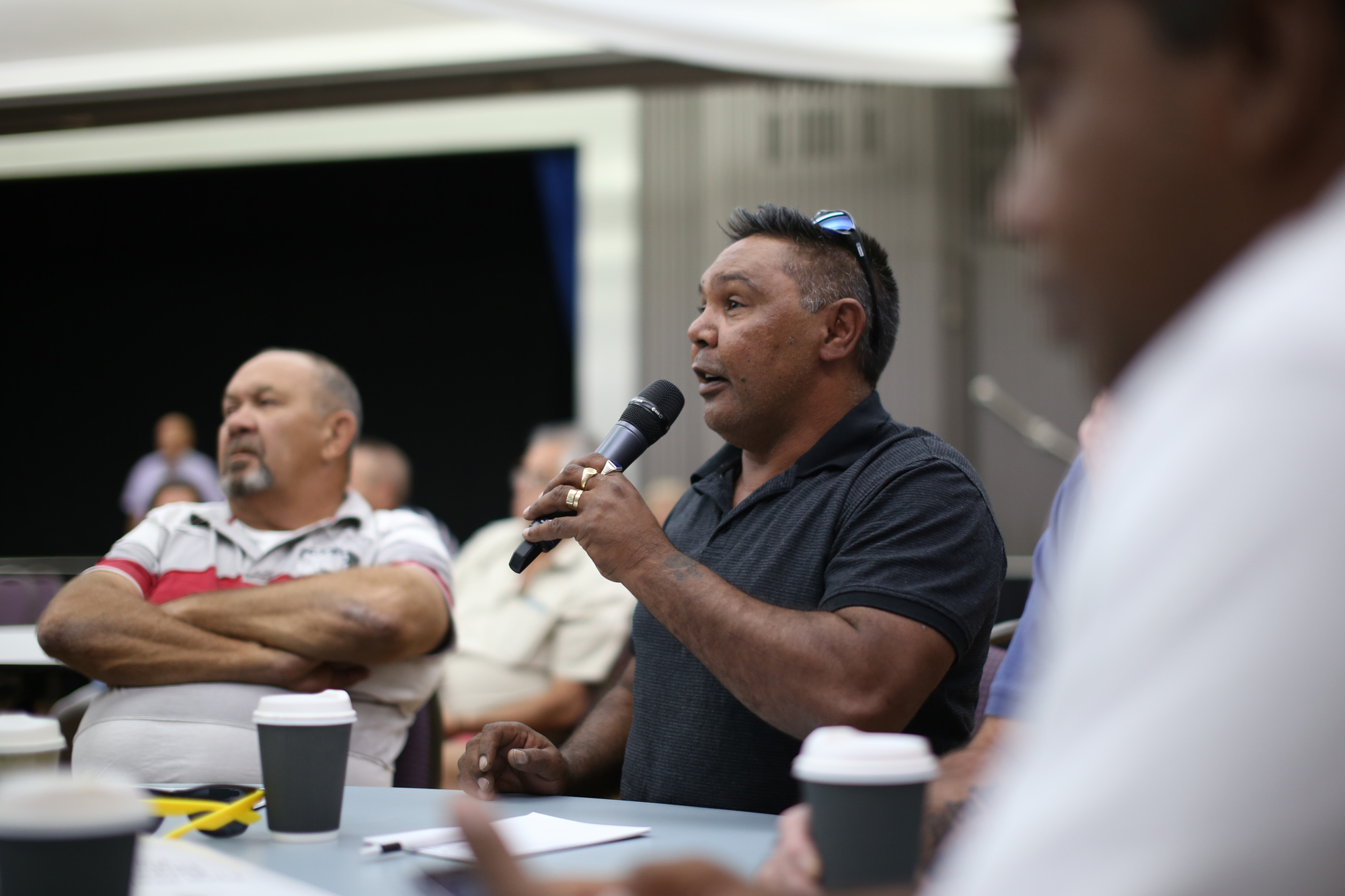The voice of all First Nations peoples must be heard on Constitutional reform and Treaty to ensure any changes reflect their views, needs and history, according to representatives who met in Dubbo last weekend.
Around 100 delegates from Aboriginal nations across Western NSW met on Wiradjuri land on 17-19 February 2017 for the third in a series of 12 First Nations Regional Dialogues on Constitutional reform.
“Attendees were passionate about a Treaty and we had a very wide-ranging and productive discussion on next steps,” Referendum Council Co-Chair, Pat Anderson said. “I would like to thank everyone who took part.”

In particular, Delegates felt strongly that decisions around constitutional reform, including whether a referendum is held, must be led by First Nations people.
“Those attending the Dubbo Dialogue want to ensure the outcome of this process truly reflects the views of First Peoples and is not a rubber stamping of a politician’s model; a decision that has already been agreed to by politicians,” Ms Anderson explained.
“The Dialogues we are undertaking are different to consultation, because First Peoples are being asked to actively say what ‘recognition’, a controversial word, means to them.
“There is a discussion paper our sessions are based around, but this document simply outlines possible questions for consideration, it does not prescribe an answer or preferred model. First Nations peoples have not yet agreed to any proposal.”
Delegates at the Dubbo Dialogue felt ongoing conversation and information sharing on the reform process is necessary. The Dialogues culminate in a National Constitutional Convention in Uluru at the end of May, where feedback gathered at each of the Regional Dialogues and discussion with their own communities will inform input by nominated representatives.
During the Dubbo Dialogue, Delegates rejected a statement of acknowledgment and being “recognised” in the Constitution. Participants preferred other options for reform, such as an elected parliamentary body, expressing a desire for reforms to reflect First Nations spiritual and cultural identity, and increased participation in and leadership of programs and services designed to drive economic prosperity.
“Attendees expressed their commitment to First Nations people having the independence, freedom and resources to support themselves,” Ms Anderson said. “Employment, health, education and housing are all areas where improvements can be made. Delegates told us this is about offering hope and opportunity to our children.”
Delegates spoke of the importance for Constitutional reform to acknowledge frontier massacres and the impact of the forced removals of Aboriginal people from country to missions and reserves and of Aboriginal children from their families and country.
It was agreed that racism and discrimination are issues which must be addressed to ensure all people, including First Peoples, are treated with respect and humanity.
Strong support was indicated for a First Nations voice to parliament, with a strong view that the body must not be a hand-picked, advisory government body, but have legitimacy in the eyes of the community through direct elections and must have real power: a power of veto and the power to make a difference.
A threshold or test of power suggested by one group was whether the voice could successfully implement every recommendation of the Royal Commission into Aboriginal Deaths in Custody.
There was a consensus across all groups for a treaty. Treaty was seen as the best form of establishing an honest relationship with government. While several options were raised, discussion included how a treaty, a voice to Parliament and a racial discrimination clause could be pursued.
The group agreed that Aboriginal input does not stop at Uluru, but there must be a negotiating period following the work of the Referendum Council.
Ten delegates were elected to attend the National Indigenous Constitutional Convention at Uluru in May.